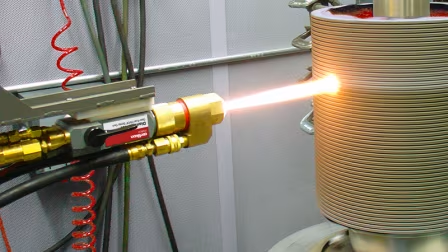Thermal spray coatings are indispensable assets within the industrial landscape, silently reinforcing critical components across diverse sectors, from aerospace advancements to foundational machinery. These coatings serve as vital protectors, extending the lifespan and efficiency of essential components by shielding them from wear, corrosion, and erosion. In the realm of materials engineering, thermal spray coatings emerge as formidable defenders, providing robust defense mechanisms against environmental elements. But what precisely defines thermal spray coatings, and why are they pivotal in contemporary industrial applications?
Imagine a scenario: a jet engine traversing the skies, its turbine blades enduring the relentless heat of combustion. Without adequate protection, these blades would succumb to the harsh environment, resulting in catastrophic outcomes. Herein lies the importance of thermal spray coatings—an intricate process where materials are heated to a molten state and meticulously applied onto surfaces, forming a protective layer that enhances substrate properties.
However, the significance of thermal spray coatings transcends the aerospace sector. From automotive engines to oil refineries, these coatings find widespread applications, safeguarding crucial components and infrastructure from degradation and deterioration.

